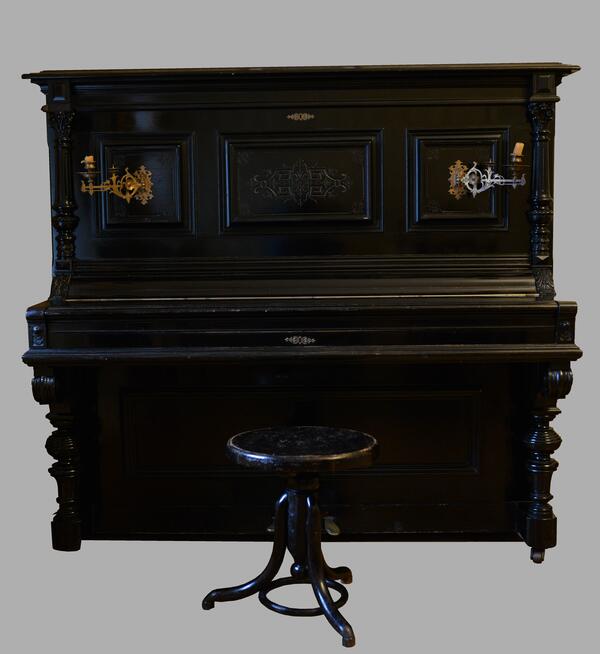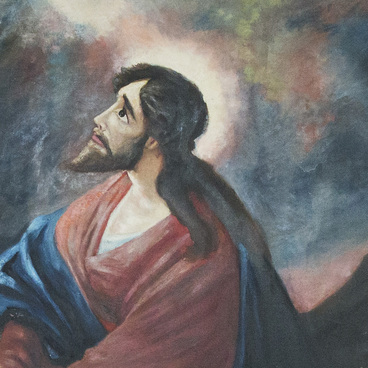For many years, Kosta Khetagurov remained a good friend of Archpriest Alexander Tsalikov, an outstanding Ossetian educator and teacher. Tsalikov single-handedly raised three daughters; Juliana, Elena and Anna, who worked in various educational institutions in Ossetia.
The Tsalikovy settled in Pyatigorsk in 1894 and quickly became respected members of the local community. Father Alexander was known as a man of broad perspective and diverse interests, and the Pyatigorsk intelligentsia often gathered in his cozy home. His daughters, educated, talented, and hospitable girls, were favorites of the Ossetian youth.
Relative of the Tsalikovy Sofya Tsalikova-Boikova recalled: ‘In Pyatigorsk, the Tsalikovs lived with their doors open. All the local Ossetians stayed with them. Therefore, it is not surprising that the young, brilliant officer of the Ossetian division Dzakhsorov Mamai was a frequent guest of the family. Meetings of the Ossetian intelligentsia were often held in the Tsalikov house. Kosta was recognized as the master of ceremonies. A brilliant improviser, he was always the center of attention. He could perform (despite his limp) lezginka dances and even mazurka dances very well. Tsalikova always rejoiced at Kosta’s arrival ‘.
Anna Tsalikova was fond of music: she sang, danced, and even knew how to play the accordion and piano. The charming girl was spoiled by the attention of fans back in her years at the gymnasium, and in Pyatigorsk she was charmed by almost all the officers who served in the Ossetian division. Anna’s sister Elena wrote: ‘Our conscious life began, of course, in Pyatigorsk… We were big social workers, Anyuta and I were very fond of going to all the celebrations and weddings, took the most lively part in the dances — we performed all the Ossetian dances very well and appeared everywhere with our own harmony. Our father didn’t mind, of course’.
Kosta Khetagurov fell in love with Anna. He repeatedly confessed his strong feelings to her and offered his hand and heart. However, for a long time, she did not give the poet any clear answer: neither positive nor negative. This uncertainty in the relationship brought real pain to Kosta.
In 1892, Anna declared that she was still too young to think about marriage. However, Kosta did not give up trying to win her favor. He continued to write letters to her and even, being in exile, secretly went to Vladikavkaz to see and explain to the girl. However, Tsalikov again politely declined his offer.
The Tsalikovy settled in Pyatigorsk in 1894 and quickly became respected members of the local community. Father Alexander was known as a man of broad perspective and diverse interests, and the Pyatigorsk intelligentsia often gathered in his cozy home. His daughters, educated, talented, and hospitable girls, were favorites of the Ossetian youth.
Relative of the Tsalikovy Sofya Tsalikova-Boikova recalled: ‘In Pyatigorsk, the Tsalikovs lived with their doors open. All the local Ossetians stayed with them. Therefore, it is not surprising that the young, brilliant officer of the Ossetian division Dzakhsorov Mamai was a frequent guest of the family. Meetings of the Ossetian intelligentsia were often held in the Tsalikov house. Kosta was recognized as the master of ceremonies. A brilliant improviser, he was always the center of attention. He could perform (despite his limp) lezginka dances and even mazurka dances very well. Tsalikova always rejoiced at Kosta’s arrival ‘.
Anna Tsalikova was fond of music: she sang, danced, and even knew how to play the accordion and piano. The charming girl was spoiled by the attention of fans back in her years at the gymnasium, and in Pyatigorsk she was charmed by almost all the officers who served in the Ossetian division. Anna’s sister Elena wrote: ‘Our conscious life began, of course, in Pyatigorsk… We were big social workers, Anyuta and I were very fond of going to all the celebrations and weddings, took the most lively part in the dances — we performed all the Ossetian dances very well and appeared everywhere with our own harmony. Our father didn’t mind, of course’.
Kosta Khetagurov fell in love with Anna. He repeatedly confessed his strong feelings to her and offered his hand and heart. However, for a long time, she did not give the poet any clear answer: neither positive nor negative. This uncertainty in the relationship brought real pain to Kosta.
In 1892, Anna declared that she was still too young to think about marriage. However, Kosta did not give up trying to win her favor. He continued to write letters to her and even, being in exile, secretly went to Vladikavkaz to see and explain to the girl. However, Tsalikov again politely declined his offer.


